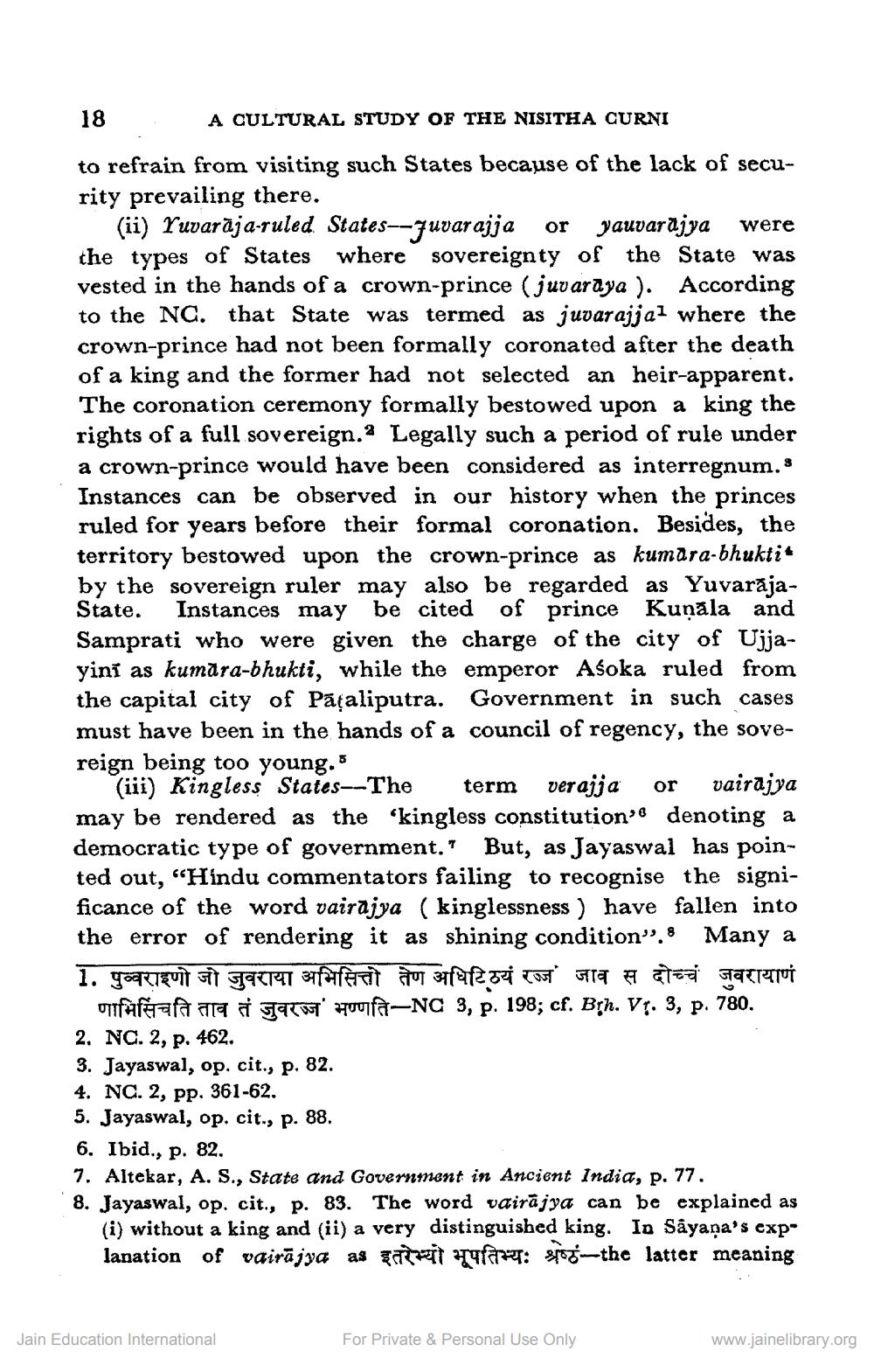________________
18 L A CULTURAL STUDY OF THE NISITHA CURNI to refrain from visiting such States because of the lack of security prevailing there.
(ii) Yuvarāja-ruled. States--yuvarajja or yauvarajya were the types of States where sovereignty of the State was vested in the hands of a crown-prince (juvaraya ). According to the NC. that State was termed as juvarajjal where the crown-prince had not been formally coronated after the death of a king and the former had not selected an heir-apparent. The coronation ceremony formally bestowed upon a king the rights of a full sovereign.2 Legally such a period of rule under a crown-prince would have been considered as interregnum.S Instances can be observed in our history when the princes ruled for years before their formal coronation. Besides, the territory bestowed upon the crown-prince as kumara-bhukti* by the sovereign ruler may also be regarded as YuvarājaState. Instances may be cited of prince Kuņāla and Samprati who were given the charge of the city of Ujjayiní as kumāra-bhukti, while the emperor Asoka ruled from the capital city of Pațaliputra. Government in such cases must have been in the hands of a council of regency, the sovereign being too young.'
(iii) Kingless States--The term verajja or vairajya may be rendered as the 'kingless constitution' denoting a democratic type of government." But, as Jayaswal has pointed out, "Hindu commentators failing to recognise the significance of the word vairajya ( kinglessness ) have fallen into the error of rendering it as shining condition”. 8 Many a 1. पुवराइणो जो जुवराया अभिसित्तो तेण अधिटि ठयं रज्ज' जाव स दोच्च जुवरायाणं
ufaftrafa ara i Jaw' zoufa-NC 3, p. 198; cf. Bph. Vr. 3, p. 780. 2. NC. 2, p. 462. 3. Jayaswal, op. cit., p. 82. 4. NO. 2, pp. 361-62. 5. Jayaswal, op. cit., p. 88. 6. Ibid., p. 82. 7. Altekar, A. S., State and Government in Ancient India, p. 77. 8. Jayaswal, op. cit., p. 83. The word vairājya can be explained as
(i) without a king and (ii) a very distinguished king. In Sayana's explanation of vairajva as इतरेभ्यो भूपतिभ्यः श्रेष्ठं-the latter meaning
Jain Education International
For Private & Personal Use Only
www.jainelibrary.org




